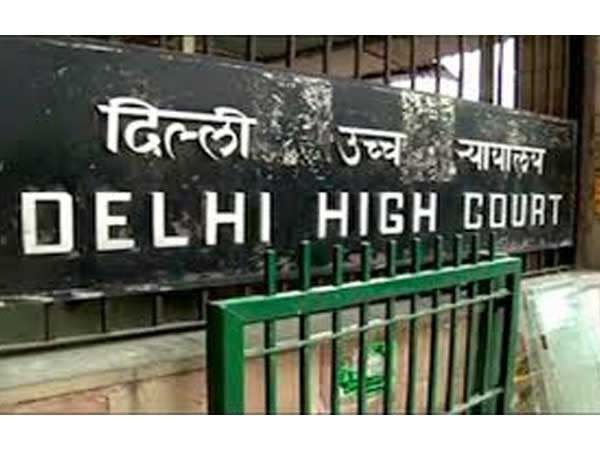Legal recognition of same-sex marriage? Delhi HC seeks Centre's response

The Delhi High Court Wednesday sought the Centre's response on separate pleas by two same sex couples, one seeking to get married under the Special Marriage Act (SMA) and the other seeking registration of their wedding in the US under the Foreign Marriage Act (FMA).
A bench of justices R S Endlaw and Asha Menon issued notice to the Centre and the Delhi government seeking their stand on the plea by two women seeking to get married under the SMA and challenging provisions of the statute to the extent it does not provide for same sex marriages.
Meanwhile, counsel Raj Kumar Yadav, who was representing the Centre, told the Delhi High Court that this is a peculiar situation and such a situation has not occurred in the history of the Santana Dharma.
The court also issued notice to the Centre and the Consulate General of India in New York on the other plea by two men who got married in the US but were denied registration of their marriage under the FMA.
The bench listed both matters for hearing on January 8, 2021. During the hearing, the bench said it has no doubts regarding maintainability of the petitions, but added that the concept of marriage emanates from the customary laws which do not recognise same sex marriages.
It also said that marriage is not defined under the SMA and FMA and everyone interprets what a marriage is according to the customary laws.
It said once same sex marriages is recognised under the customary laws, it would be followed by the other statutes like SMA and FMA and added that if the petitioners wished to make any changes in their pleas to challenge definition of marriage, now was the time instead of having to do it at a much later stage in the proceedings.
The court further said that SMA was enacted as there were no customs for inter-faith and inter-caste marriages.
Senior advocate Menaka Guruswamy, appearing for both set of petitioners, said the petitioners are not seeking relief under any customary or religious laws, rather they are seeking that the civil laws -- SMA and FMA -- which are applicable to all kinds of couples, including inter-caste and inter-faith, be also made applicable to them.
Guruswamy also told the bench that both SMA and FMA are not based on customary laws.
One of the counsels, Rajkumar Yadav, representing the central government said that in the 5,000 year old history of Sanatan Dharma such a situation was being faced for the first time.
To this the bench remarked, that the 'language in the statutes is gender neutral. Please try to interpret the law in the interests of every citizen of the country.' It also said that the petition was not adversarial in nature and central government standing counsel Kirtiman Singh, who also appeared for the Centre, agreed that it was not.
The two women, who were also represented by advocates Arundhati Katju, Govind Manoharan and Surabhi Dhar, have said in their plea that they have been living together as a couple for 8 years, in love with each other sharing the highs and lows of life, but unable marry as they are a same sex couple.
The women, aged 47 years and 36 years, have contended that not being allowed to get married has denied them several rights -- liking owning a house, opening a bank account, family life insurance -- which opposite sex couples take for granted.
'Marriage is not just a relationship between two individuals – it brings two families together. But it is also a bundle of rights. Without marriage, the petitioners are strangers in law. Article 21 of the Constitution of India protects the right to marry a person of one's choice and this right applies with full force to same-sex couples, just as it does to opposite-sex couples,' they have contended in their plea. The two men, also represented by the same set of lawyers, were married in the United States, but their marriage was not registered under the FMA by the Indian consulate as they were a same sex couple.
'The Indian consulate would have registered the marriage of any similarly placed opposite sex couple,' they have contended.
The couple, who were in a relationship since 2012 and got married in 2017, have also claimed that during the COVID-19 pandemic, non recognition of their marriage by the laws here continues to disentitle them to travel as a married couple to India and spend time with their families.
They have contended that the consulate's decision has violated their rights under Articles 14, 15, 19 and 21 which the Supreme Court, in Navtej Singh Johar case, had held was guaranteed to LGBT and non-LGBT Indians with equal force.
'Further, the Foreign Marriage Act (FMA) ought to be read to apply to same-sex marriages and is unconstitutional to the extent it does not do so,' their petition has said.
They have also said that 'nonrecognition of same-sex marriages is a wanton act of discrimination that strikes at the root of dignity and self-fulfilment of lesbian, gay, bisexual, transgender and queer (LGBTQ)couples'. The two women petitioners, according to their plea, are part of the team that built north India's leading clinic specializing in mental health and learning disabilities for children and young adults.
They have sought that the SMA be declared as unconstitutional to the extent that it does not allow solemnisation of marriage between same sex couples.
They have also urged the court to declare that the SMA ought to apply to all couples regardless of their gender identity and sexual orientation and also issue a direction to the Sub-Divisional Magistrate Kalkaji, who is also the Marriage Officer of South East District of Delhi to register their marriage under the Act.
(Inputs from ANI, PTI)

 Yahoo Sport
Yahoo Sport 





































